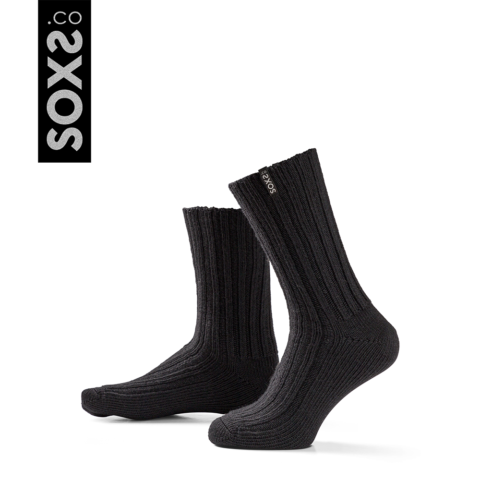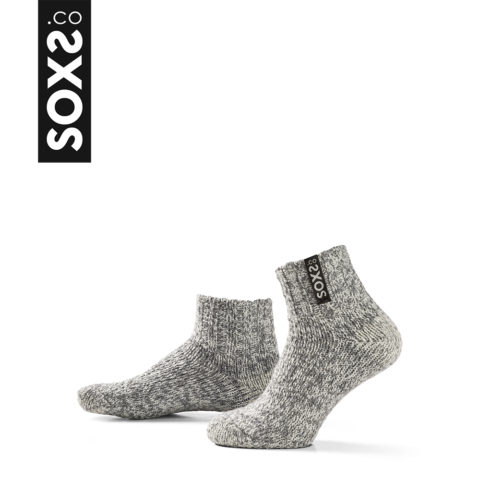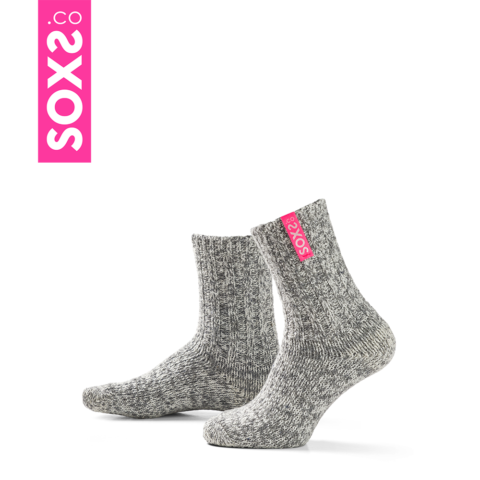Soft warm premium wool socks
Gift ready, stylishly packaged
Orders placed before 1:00 PM will be shipped today (on weekdays) PLEASE NOTE: The delivery time of Pimp My Soxs is 5 working days!
Sheep shearing is an essential agricultural practice that ensures the health and comfort of sheep. Domesticated breeds produce wool continuously, making regular shearing necessary for their wellbeing. At SOXS, we believe in transparent information about where our materials come from and how they’re obtained.
Sheep shearing involves removing the woolen fleece that has grown over time. Without this regular maintenance, sheep can experience discomfort, overheating, and health complications. The process is similar to humans getting a haircut – necessary for comfort and hygiene.
Professional shearing typically happens once yearly, usually in spring before warmer months arrive. When performed correctly by trained professionals, shearing helps sheep stay comfortable through changing seasons and prevents their wool from becoming matted or causing skin issues.
Animal welfare is central to sustainable wool production. Ethical shearing practices focus on keeping sheep calm and comfortable throughout the process. Skilled shearers use techniques that minimize stress while efficiently removing the fleece in one continuous piece.
At SOXS, we support responsible wool sourcing that prioritizes both the sheep’s needs and environmental considerations. This approach aligns with our commitment to create products that are good for you and the planet.
After shearing, the wool undergoes cleaning and processing before becoming the soft, warm material in your SOXS. Professional shearers use specialized tools to carefully remove the fleece while protecting the sheep’s skin. Their expertise ensures the wool remains in excellent condition for processing.
The collected wool is then transformed into versatile products known for their natural insulating properties. Our wool socks provide warmth in winter while remaining breathable enough for comfort in milder weather – a natural benefit of this remarkable material.
Wool serves as a renewable resource with numerous applications in sustainable textiles. Its natural properties make it ideal for creating warm socks that perform well in various conditions. Your feet stay dry during outdoor activities thanks to wool’s ability to wick moisture while maintaining insulation.
From our extra warm wool socks for winter to outdoor wool socks for active use, the material offers consistent comfort and functionality. Wool naturally regulates temperature, keeping your feet comfortable whether you’re hiking through mountain trails or relaxing at home.
Responsible wool sourcing is supported by established certifications and standards from organizations like the International Wool Textile Organization. These guidelines ensure that sheep receive proper care and that environmental impacts are minimized throughout the production process.
SOXS adheres to strict ethical standards for our wool sourcing. We consciously choose mulesing-free wool that’s better for the animals and creates a superior product for you. This commitment supports a transparent and sustainable approach to textile production.
Quality wool production requires proper training for all involved in the shearing process. Professional shearers develop skills that protect sheep from stress or injury while efficiently harvesting the wool. The best practitioners understand that animal welfare and wool quality go hand in hand.
Industry improvements continue through education, certification programs, and consumer awareness. By supporting companies that prioritize ethical standards, you help encourage responsible practices throughout the wool supply chain.
While various alternative materials exist on the market, natural wool offers unique benefits that are difficult to replicate. The breathability, temperature regulation, and moisture management of wool create a comfortable experience for your feet throughout the day.
Natural wool is also biodegradable and renewable, making it an environmentally conscious choice compared to many synthetic alternatives. When sourced responsibly, wool represents a balance of performance, comfort, and sustainability.
Our wool socks combine traditional craftsmanship with modern ethical standards. We carefully select wool from sources that prioritize animal welfare and environmental responsibility. This attention to detail results in warm socks that feel comfortable against your skin while providing lasting performance.
The natural properties of wool create socks that keep your feet warm without overheating and dry without feeling clammy. Whether you’re seeking men’s wool socks for everyday wear or specialized outdoor options, the quality of ethically produced wool makes a noticeable difference in comfort.
Curious about which wool socks would best suit your lifestyle? Discover our complete collection at soxs.co and experience the difference that quality wool makes.

Calf height

Ankle height

Calf height